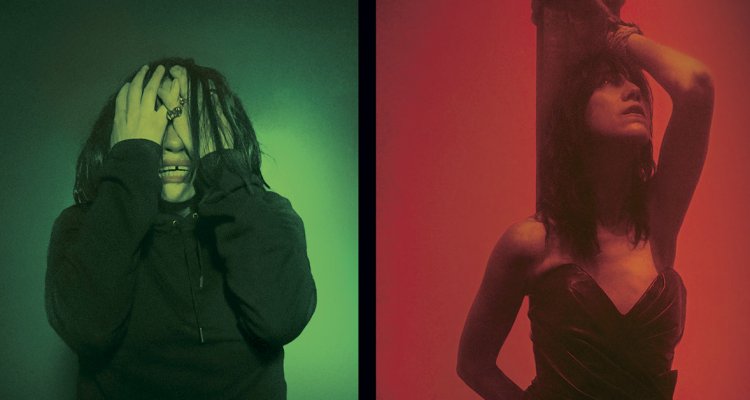Alfred Hitchcock’s advice for aspiring filmmakers famously included a succinct but pertinent recommendation: “Torture the women.” Known for other provocative titles like the erotic drama “Love” and last year’s trippy dance thriller “Climax,” Gaspar Noé takes a cue from Hitchcock’s book in what Noé describes as a “modest essay about beliefs and the art of filmmaking.” For “Lux Æterna,” which screened out of competition at the Cannes Film Festival, the only necessary trigger warning is “directed by Gaspar Noé.”
READ MORE: 2019 Cannes Film Festival: The 21 Most Anticipated Movies
Indeed, the women in Noé’s self-referential film-within-a-film are subjected to a number of grisly outcomes. The mockumentary travels, in disorienting parallel split-screen shots, through the mounting chaos of a film set for “God’s Craft,” Noé’s invented film on witchcraft. Béatrice (Béatrice Dalle), the inner film’s de facto director, bemoans the general incompetence on set, and spends the duration of the film trying to wrest control from the upper management at any cost. Poor Charlotte (Charlotte Gainsbourg), the film’s central actress, fields distressed phone calls from her child, whose schoolmates are tormenting her. Charlotte also continually fends off the advances of a persistent young filmmaker (Karl Glusman), who attempts to tap her for his first project. Meanwhile, various stick-thin supermodels (Abbey Lee and Mica Arganaraz) and It girls clad in glittery cocktail dresses (courtesy of producers Yves Saint Laurent) throw tantrums in the fitting rooms. “I’ll just be a fucking scarecrow,” Lee whines, sticking her arms out mockingly.
READ MORE: the 100 Most Anticipated Films Of 2019
A modest essay, indeed. All of these assorted miseries culminate in an ending so unwatchable, you can almost feel Noé smirking behind the screen, daring his audience to avert their eyes. Those prone to epilepsy should be particularly wary: As the film set descends further and further into pandemonium, DP Benoit Debie casts these characters in glaring monotone, then blinding, multi-colored strobe.
READ MORE: Summer Movie Preview: 35 Films You Shouldn’t Miss
Noé’s style is aesthetically valid, yet deeply alienating, sometimes borderline painful to watch. Pretension is an understatement, as title cards in ancient Roman-looking font appear spliced occasionally in between scenes. They bear the all-caps musings of Noé’s cinematic forefathers: Carl Theodor Dreyer and Rainer Werner Fassbinder deliver self-aggrandizing mantras of craft. “When the pressure gets too strong, I turn into a dictator,” a quote from Fassbinder reads. In “Lux Æterna,” constant cues of self-awareness — like the moment when Béatrice jostles the camera from a would-be paparazzi’s hands and shouts, “What is this? The Cannes Film Festival?” — remind us that Noé is that dictator in this authoritarian space.
READ MORE: The 25 Best Films Of 2019 We’ve Already Seen
Here, as always, there’s that familiar Noé-ian feeling that no matter how desperately you scramble to be in on the joke, or the reference, or the central driving force of the enterprise, meaning will always be cloaked in another layer of irony or refracted into another valence of self-commentary. It remains unnervingly elusive.
In that way, Noé’s film seems to preempt all criticism. A tortured woman is not that, but a commentary on tortured women, a capital-S Statement: Filmmaking is always predicated on a woman’s pain! Aestheticizing female pain translates to worthwhile art! “It’s really chic,” Béatrice tells Charlotte enthusiastically. “Either you’re a beauty queen, or you’ve been burned at the stake.” A split-screen does not accidentally derail comprehension, but deliberately comments on the chaos of creation, the disorder of production. A strobe effect is not unwatchable, but a test of its audience’s breaking point.
There’s something frustrating about Noé’s approach, but also an undefinably admirable quality to the extremity of his showmanship. Unlike Luca Guadagnino, whose collaboration with the couture house Valentino “The Staggering Girl” slips into non-narrative, Noé maintains a tight grip on form. There is nothing organic about this approach. Everything is so intentional, it combusts. [B-]

